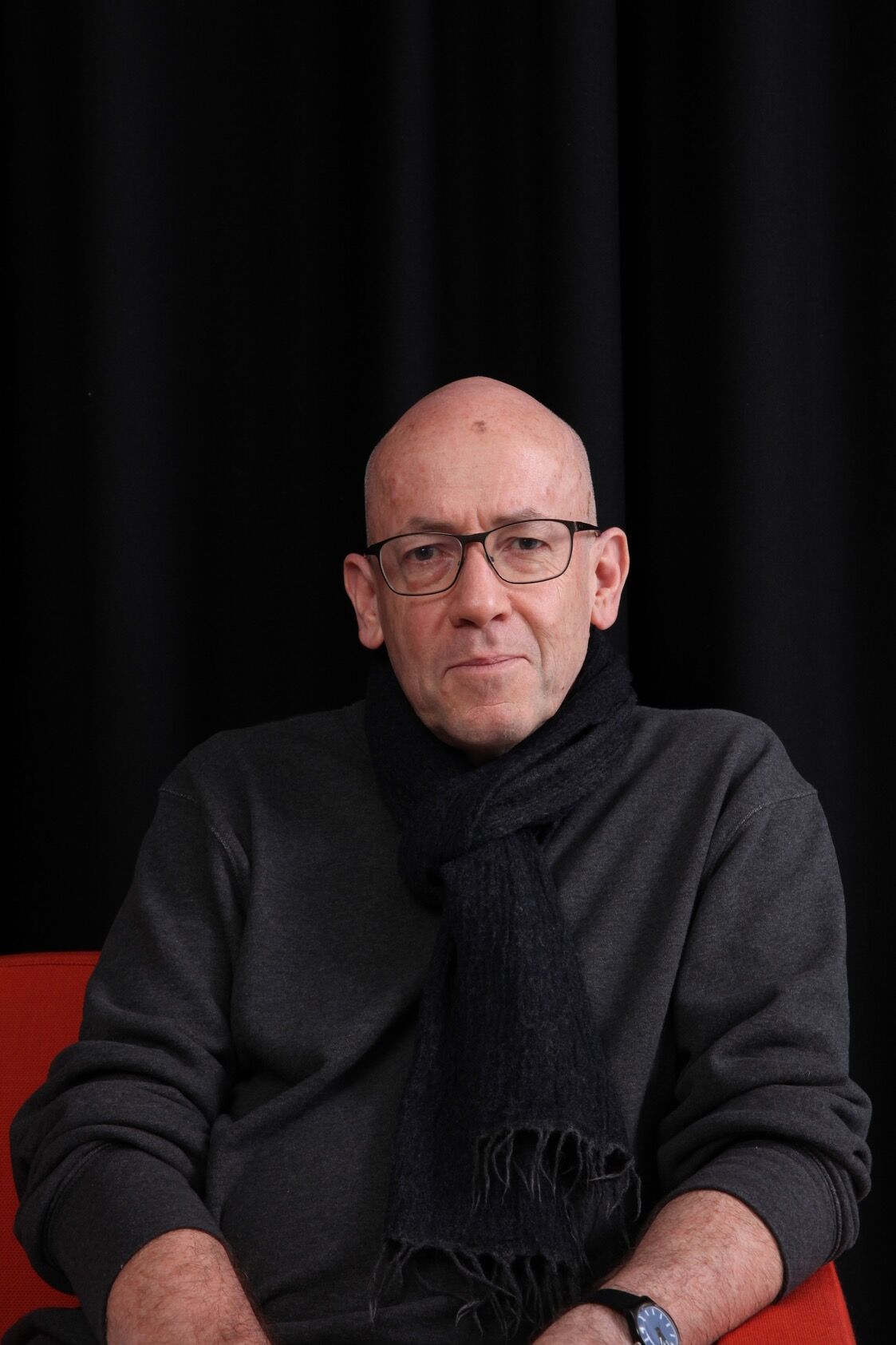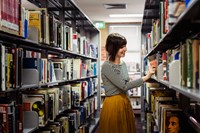Issue 105
Term 2 2018
Stories make us: in conversation with Morris Gleitzman
SCIS talks to the new Australian Children's Laureate, Morris Gleitzman, about why young people need stories and how we can facilitate a reading culture to support this.
In February, award-winning children’s author Morris Gleitzman was named the new Australian Children’s Laureate for 2018–19. As laureate, he will join his predecessors, Leigh Hobbs, Jackie French, Alison Lester and Boori Monty Pryor in promoting the importance of reading.
Morris kindly shared his time with us to discuss the laureateship; why the need for stories is more important now than ever; how he will advocate for the transformative power of reading — and how library professionals are a fundamental part of this process.
Speaking just a couple of days after his appointment, he was excited about how he would use his role to promote reading for young people. ‘I want to make available to as many young Australians as possible a wide range of rich and nourishing reading experiences, with all the support, encouragement, inspiration, resources and permissions that help that happen.’
Morris will take his campaign to parents, decision makers, and people outside the education sphere — those ‘who may have either forgotten how important good stories were to them in their childhood, or maybe those who had the misfortune to not have the opportunity to discover everything good stories had to offer’. This means that his campaign will be targeted at adults as much as children; it is, after all, largely adults who are at the centre of children’s lives and help make reading available to them.

The transformative power of stories
The focus of Morris’s laureateship will be ‘Stories make us; stories create our future’, highlighting the power of good books to inspire empathy, resilience, and positive thinking. Stories are particularly important for young people, having the transformative power to help them make sense of the world. Through stories, young people are often exposed to protagonists who form empathetic capacity and resilience, and follow them on their journey as they grapple with problems, Morris explains. Young readers who share the journey with characters ‘need to continue that process of grappling and not give up and not be crushed or daunted as they make their way to the conclusion of the story’. It is through this shared journey that we absorb the qualities of the characters. ‘There’s an absolute connection between reading good stories and all of the developments that ideally take place through childhood into adolescence,’ he says.
‘I think one of the daunting things that occurs when young people reach around eight, nine or ten years old — the age I specifically write for — is when they no longer allow their world to be wholly defined by the ideas, opinions and information that they get from others. When we reach middle to upper primary, we’re starting to think for ourselves, look at the world in a more independent way and make our own decisions about what strikes us as good or bad, or right or wrong. We’re laying the foundation for our own personal, moral landscape, and it’s a very exciting and important time of our life.
‘Stories have a really important role to play here because, in many ways, that’s exactly what many of the central characters of kids’ stories are doing: developing the capacity for critical thinking and problem solving. There are a few years for each of us where this process has started, but the biological imperative hasn’t hit us yet. It’s wonderful that we have those few years to do some important thinking and broadening of our awareness. I find it a great privilege to contribute my stories to that particular time in my young readers’ lives,’ Morris says.
The urgency for stories remains
The need for students to connect with reading material is becoming increasingly important in our current climate. Morris recognises two aspects that make this so: competing with the distraction of screen culture, and the need to help young people make sense of the fragmented world that is presented to them through channels such as the news media. The role of the author is, in a way, to collect those pieces and assemble them into a more cohesive form.
‘In one sense,’ Morris says, ‘young people today have the world at their fingertips; there is very little that they can’t get a glimpse of. Stories have the opportunity, and therefore the responsibility, to portray a more fully formed view of the world than a lot of those glimpses will give.
‘The news media, for example, has an important responsibility to let us know what is going on in the world. Traditionally, they tend to let us know about the not-so-good things; they reflect, in countless decontextualised little fragments, examples of the worst that we humans are capable of.
‘But,’ he continues, ‘there is another side to human existence that is equally, perhaps more important, and the two sides shouldn’t be separated from each other. And what stories can do, and what I’ve always tried to do in my work, is to look honestly at the worst we humans are capable of, but also to have a part of each story where characters show the best that we are capable of, starting with the love and friendship that, if we’re lucky, is at the centre of most of our lives, through to responsibility, generosity and compassion.’
Morris doesn’t shy away from the difficult topics in his writing. His Felix series, for example, tells the story of a Jewish boy living through the Holocaust — but at the centre of the story is resilience and survival, imagination and friendship. In the series’ first book, Once, Felix comforts his friends with stories from his imagination; and, while bearing witness to the atrocities portrayed in the story, we too allow ourselves to be comforted by the human spirit in the face of extreme adversity.
Morris paints a picture of a world that is at the fingertips of young people, just waiting to be discovered, and this naturally comes with the potential to be misused or misunderstood. We know that library professionals play a significant role here; while stories help children understand the world, library professionals teach the digital literacy skills required to navigate it. According to Morris, ‘most students, at least in a developed world, have some sort of online access; with judicious guidance, there is good reading to be found online as well’.
Of course, our unfiltered access to the world is made possible by screen culture, which the new laureate also emphasises as a hurdle in helping young people develop a love of reading. We often rely on technology to speed up the way we do things, and ‘in this world where time efficiency is such a dominant thing, reading is not really something that you can speed up without losing much of what it gives us,’ Morris explains. ‘One of the challenges for us all is to find or make the time for our own reading, and for the reading of young people.’
Fostering a reading culture through conversation
For adults to make reading available to as many kids as possible, in a rich and rewarding way, Morris says that we need to focus on helping provide them with access to books, and the space and time to read them.
He starts with how adults at home can encourage, model and share reading with children of all ages; not necessarily just those who are not yet independent readers. ‘I hear from upper primary kids, and even secondary kids, who are perfectly capable of happily reading to themselves, how wonderful it is when a member of the family wants to take the time to sit down and share the process.’ And while that focuses on familial relationships, Morris highlights another way for adults in general to share the experience with young people: ‘to be available for those conversations that all of us, at any age, want to have once we’ve read a story that has had an impact on us and expanded our world view’.
I always love the opportunity to say thank you to the librarians of the world. I see us as all being part of the same team. None of us could really do our job without the others.
He says, ‘Books can take us into the emotional circumstances inside a character that perhaps we haven’t quite experienced ourselves so, as soon as we come across something that affects us and creates important shifts in our thinking of the world, we have to talk about this with people we care about, and young readers are no different. I see this as an extension of the reading process itself — in fact, the reading process isn’t wholly complete unless these conversations are available. So many of the life skills and attributes that reading good stories can develop in young people are further cemented and made applicable to everyday life through these conversations.’
But how do we open the doorway that leads children to a lifetime of reading? It’s about finding that one particular book — the one that transforms their lives. ‘We only need to have the experience of one story that we engage with so deeply that it takes over our life so completely and changes us in all sorts of ways,’ he says. ‘Once we discover what encountering stories through the medium of words can give us, we don’t want to stop. And I’m pretty confident that we will continue, as long as young people have the opportunities.’
‘This,’ Morris says, ‘is where informed help from adults is so important. Once a young person has had the experience once or twice, I believe, and I hear this from parents and librarians all the time, no barrier will stop them finding more stories, more books like that.’
Library professionals open doors to new experiences
Morris Gleitzman’s predecessor Leigh Hobbs spent a large portion of his laureateship campaigning for school librarians and school libraries, especially in response to their diminishing roles in some schools. Morris also understands the important role that school library staff play in developing young people’s literacy skills. ‘I can’t really think — certainly in the developed world — of a greater piece of damage that can be done to the quality of young people’s education than to either diminish or remove their school library,’ he says.
With 30 years in the industry, and over 40 published books and countless awards behind him, Morris is grateful for the role that librarians played in his own life. His parents signed him up to their public library in 1950s South London, unleashing him into a world of new experiences.
‘The librarians were quite enlightened for their time,’ he remembers. Once he was able to read independently, they gave him full reign of the library and, recognising his reading levels, were happy for him to dip into the odd adult book during his upper primary years.
‘That sense of freedom and adventure they gave me in that library transformed my life. I think everything I’ve done as an adult writer — and reader — had its seeds in those experiences.’ It’s exactly because of that — the ability of library professionals to recognise and cater to individual reading levels rather than relying on the assignment of age-appropriate texts — that they are so important in developing students’ literacy skills and giving them the tools to become lifelong readers.
And although Morris isn’t averse to ebooks or digital reading, he does think that a library well-stocked with print books cannot be replaced. He says that is ‘because of the very thing that I experienced myself as a child: that feeling of agency that a library gives us because there are so many choices and they are ours to make. I don’t think I’m being unduly old-fashioned to say that wandering among bookshelves with physical books on them increases that feeling of agency; that delightful feeling of the world of books and reading being a physical adventure as well as an intellectual, emotional and cultural one.

‘A lot of great education theorists have said that the best learning experiences come when intellectual, emotional and cultural experiences are occurring in a physical way — where there is actually a tactile component to it. I think traditional books on library shelves is the absolute perfect place for that part of human education to happen.’
We’re all in this together
Morris recognises an opportunity to work with members of the library and publishing professions during his laureateship. He will consult with experienced librarians and booksellers and let them be his ‘recommendation panels’ to help him get the right books into the right children’s hands.
‘I always love the opportunity to say thank you to the librarians of the world,’ he says. ‘I see us as all being part of the same team. None of us could really do our job without the others.’
We wish you the best of luck in your laureateship, Morris. Thank you for your compassion, your humour, and your ongoing endeavours to help children discover the magic of stories.
Image credits
Feature photo supplied by DMCPR Media
The interview extracts have been lightly edited and reordered where necessary to improve readability or clarity.
